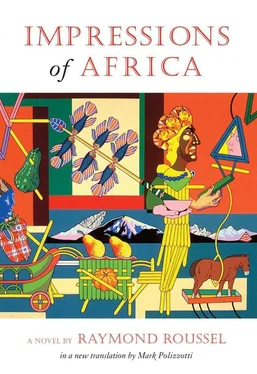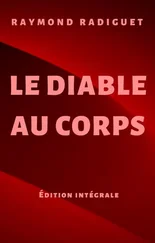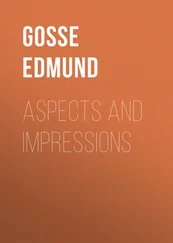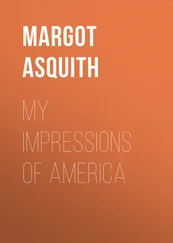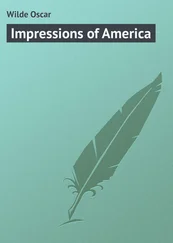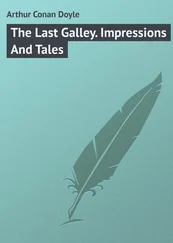At a sign from Marius, the graceful felines began a frolicsome game of Prisoner’s Base.
To begin , one of the greens ran up to the red camp and three times, with the tips of its barely unsheathed claws, tapped the paw that one of its adversaries extended; at the last tap it swiftly ran away, chased close behind by the red , which tried to catch it.
At that moment, another green ran after the pursuer, which, forced to turn back, was soon aided by one of its partners; the latter lit upon the second green , which was forced to flee in turn.
The same maneuver was repeated several times, until the moment when a red , managing to tag a green with its paw, let out a victorious meow.
The match halted, and the green prisoner, entering enemy territory, took three steps toward its camp, then stood stock still. The cat that had earned the honor of the capture went to the greens ’ camp and began anew, by sharply rapping three times on a tendered paw, freely offered.
At that point, the alternating pursuits resumed with gusto, culminating in the capture of a red , which obediently stopped dead before the enemy camp.
Fast-paced and captivating, the game went on without any infractions of the rules. The prisoners, in two symmetrical and lengthening rows, sometimes saw their number decrease when a player’s skillful tag was able to deliver one of its teammates. Such alert runners, if they reached the opposing camp unhindered, became untouchable during their stay over the line they’d crossed in glory.
Finally, the group of green prisoners grew so large that Marius imperiously decreed the red team the victors.
The cats, without a moment’s delay, went back to the child and scampered up his body, taking the places they’d had on arrival.
As he walked away, Marius was replaced by Bob, the last of the brothers, a ravishing blond boy of four with big blue eyes and long curly hair.
With incomparable mastery and miraculously precocious talent, the charming lad began a series of impressions accompanied by eloquent gestures. The sounds of a train picking up speed, the cries of various domestic animals, the shriek of a blade against a whetstone, the sudden pop of a champagne cork, the gurgling of poured liquid, fanfares of a hunting bugle, a violin solo, and the plaintive notes of a cello formed a staggering repertoire that could give whoever momentarily shut his eyes the illusion of total reality.
The prodigy took his leave to rejoin Marius, Hector, and Tommy.
Soon the four brothers moved aside to let through their sister Stella, a charming adolescent of fourteen, who, dressed as Fortune , appeared balancing on the crest of a narrow wheel that she kept in constant motion beneath her feet.
Rolling smoothly, the girl began turning the narrow rim in every direction, pushing off with the tips of her heels in an uninterrupted series of small hops.
In her hand she held a large, deep, convoluted horn of plenty, from which money made of light, shining paper poured forth like a shower of golden coins and floated slowly to the ground, producing no metallic echo.
The louis, double louis, and large hundred-franc disks formed a sparkling train behind the lovely traveler, who, maintaining a smile on her lips and her place on the wheel, performed miracles of equilibrium and speed.
As with certain magician’s cones that endlessly disgorge an infinite variety of flowers, the reservoir of coins seemed inexhaustible. Stella had only to shake it gently to sow its riches, a thick, uneven bed soon partially crushed by the circumnavigations of the errant wheel.
After many twists and turns, the girl vanished like a sprite, sowing her pseudo-metallic currency to the last.
All eyes now turned to the marksman Balbet, who had just taken from the Zouave’s tomb the cartridge pouches, which he fastened to his flanks, as well as the weapon that was none other than a very old-fashioned Gras rifle.
Walking quickly to the right, the illustrious champion, the focus of everyone’s attention, stopped before our group and carefully selected his spot, peering toward the north of the square.
Opposite him at a great distance, beneath the commemorative palm, stood the square stake topped by a soft-boiled egg.
Further on, the gathered natives craning their necks behind the row of sycamores moved aside at a sign from Rao to clear a wide berth.
Balbet loaded his rifle; then, shouldering it with precision, he aimed carefully and fired.
The bullet, skimming the upper portion of the egg, removed part of the white, leaving the yolk exposed.
Several projectiles fired in succession continued the process; little by little the albumen envelope disappeared to reveal the inner core, which remained intact.
Sometimes, between two reports, Hector Boucharessas ran up to turn the egg, gradually baring every point of its surface to the shots.
One of the sycamores acted as a backstop to halt the bullets that penetrated its trunk, part of which had been planed flat to prevent ricocheting.
The twenty-four cartridges in Balbet’s provision were just enough to complete the experiment.
When the last of the smoke had poured from the weapon’s barrel, Hector took the egg in the palm of his hand to show it around.
Not a trace of white remained on the delicate inner membrane, which, though entirely uncovered, still enveloped the yolk without showing a single scratch.
Then, at Balbet’s request, to show that no excess boiling had eased his task, Hector closed his fist on the yellow orb and let the liquid ooze between his fingers.
The builder La Billaudière-Maisonnial appeared on schedule, carting before him, like a knife-grinder, a strangely complicated crank device.
Halting in the middle of the square, he set the voluminous machine down in the axis of the altar; two wheels and two legs kept it in perfect balance.
The entire mechanism consisted of a kind of millstone activated by a pedal, which could set in motion a whole system of cogs, levers, rods, and springs forming an inextricable tangle of metal; from one side emerged a jointed arm ending in a hand armed with a dueling foil.
After replacing the Gras rifle and cartridge pouches on the Zouave’s tomb, Balbet took from a narrow bench that formed part of the new apparatus a handsome fencing outfit comprising a mask, plastron, glove, and foil.
At once, La Billaudière-Maisonnial, facing us, sat on the now empty bench and, his body hidden from sight by the astounding mechanism rising before him, rested his foot on the long pedal that turned the millstone.
Balbet, protected by his mask, glove, and plastron, energetically traced a straight line in the ground with the tip of his foil. Then, his left sole leaning on the fixed stroke, he elegantly took his guard before the articulated arm that emerged from the left, plainly standing out against the white background of the altar.
The two swords crossed, and La Billaudière-Maisonnial, with a movement of his foot, set the millstone turning at a certain speed.
The mechanical arm, after several expert and rapid feints, suddenly straightened and landed a direct hit on Balbet, who despite his widely celebrated agility had not managed to parry this infallible and marvelous thrust.
The artificial elbow had bent back, but the millstone kept turning, and soon a new deceptive evasion, completely different from the first, was followed by an abrupt jab that struck Balbet full in the chest.
The assault continued, thrust following upon thrust. The quarte, the sixte, and the tierce, as well as the prime, the quinte, and the octave, mixing with “disengages,” “doubles,” and “cuts,” formed innumerable, unknown, and complex hits, each ending in an unexpected and lightning-quick thrust that always found its mark.
Читать дальше
